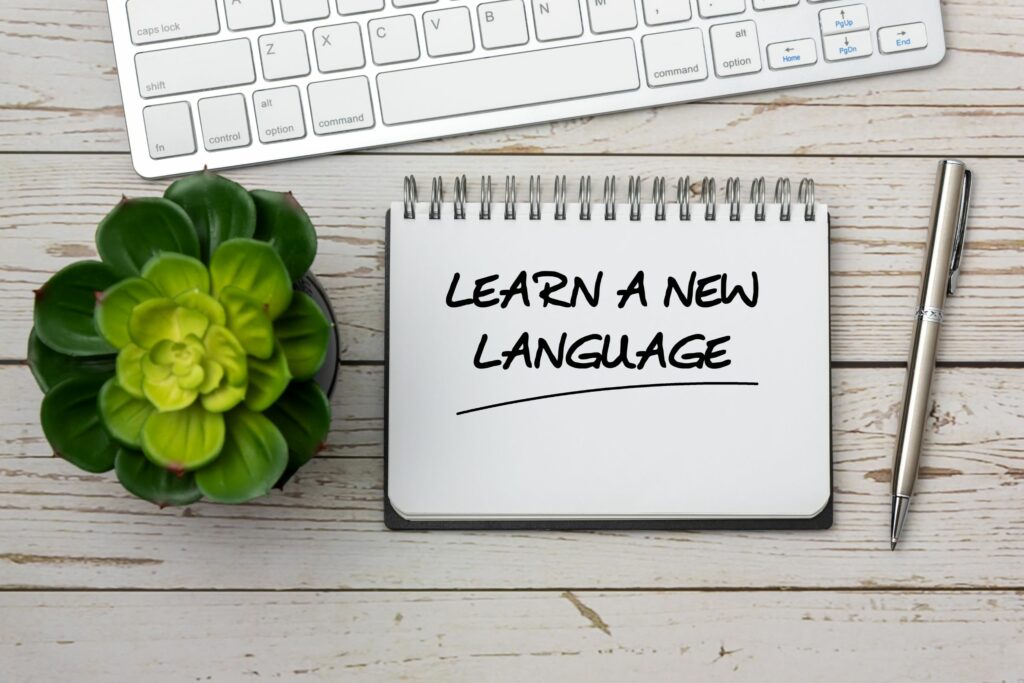Are you ready to embark on an exciting journey of mastering a new language? Understanding effective language learning strategies is crucial whether you’re a student or a global enthusiast. In this article, we’ll delve into what language learning strategies entail, how to implement them, where to find the best resources and the incredible benefits they bring. Plus, we’ll connect it all to the allure of learning the Indonesian language.
What Are Language Learning Strategies?
Language learning strategies are the tools and techniques individuals employ to acquire proficiency in a new language effectively. They are not limited to traditional classroom methods but encompass various approaches that cater to different learning styles and preferences. Here are some key language learning strategies in more detail:
- Immersive Learning: This strategy involves surrounding yourself with the target language as much as possible. Immerse yourself in the language by engaging in conversations with native speakers, watching TV shows and movies, or listening to music in the target language.
- Vocabulary Building: Expanding your vocabulary is essential for effective communication. You can build your vocabulary by creating flashcards with words and phrases in the target language, using language learning apps with built-in vocabulary lessons, or reading books and articles.
- Grammar Mastery: Understanding the grammatical structure of a language is crucial. Invest time in learning grammar rules, sentence structures, and verb conjugations. Practice through exercises and quizzes to reinforce your understanding.
- Language Classes: Enrolling in formal language classes or workshops can provide structured learning opportunities. These classes follow a curriculum, have qualified instructors, and offer a supportive learning environment. They are an excellent option for those who prefer a structured approach.
- Online Resources: The internet is a treasure trove of language learning resources. You can find online courses, video tutorials, and interactive language learning apps that cater to various skill levels. Websites like Duolingo, Rosetta Stone, and Memrise offer engaging lessons in multiple languages.
- Tandem Learning: Tandem learning involves partnering with a native speaker of the target language who wants to learn your language in exchange. This method allows for mutual language practice and cultural exchange. Online platforms and language exchange apps facilitate tandem learning.
- Language Learning Communities: Joining language learning communities, either online or in your local area, can be highly beneficial. These communities provide opportunities to practice speaking, receive feedback, and share learning experiences with fellow language enthusiasts.
- Language Learning Software: Specialized language learning software programs offer comprehensive language courses, including lessons on pronunciation, listening comprehension, and writing skills. They often provide interactive exercises and progress-tracking features.
- Private Tutoring: Consider hiring a private language tutor for personalized guidance and one-on-one instruction. Tutors can tailor lessons to your needs and pace, offering a customized learning experience.
- Cultural Immersion: Language and culture are closely intertwined. To enhance your language learning experience, immerse yourself in the culture of your language. Attend cultural events, try the cuisine, and explore the traditions associated with the language.
How to Implement Language Learning Strategies
To succeed in language learning, you need a tailored approach. Here’s how to implement these strategies effectively:
- Set Clear Goals: Define your objectives and the level of proficiency you want to achieve.
- Create a Study Routine: Consistency is vital. Allocate a specific time each day for language learning.
- Immerse Yourself: Interact with native speakers, watch movies, or read books in the target language.
- Use Technology: Explore language learning apps, podcasts, and online courses.
- Practice Speaking: Don’t avoid speaking in the new language, even if you make mistakes.
Where to Find the Best Resources
Finding the right resources can make or break your language-learning journey. Here are some valuable sources:
- Language Learning Apps: Duolingo, Babbel, and Memrise offer interactive lessons.
- Online Courses: Platforms like Coursera and edX provide in-depth language courses.
- Tutoring Services: Consider hiring a private tutor for personalized guidance.
- Community Groups: Join online language exchange forums and practice with native speakers.
- Local Language Schools: Look for language schools that offer immersive experiences in your area.
Benefits of Language Learning
Mastering a new language brings a plethora of benefits:
- Enhanced Communication: One of the most immediate and significant benefits of language learning is improved communication. Mastering a new language allows you to connect with people from diverse backgrounds and cultures, breaking down language barriers. Effective communication is a valuable skill whether you’re traveling, working, or socializing.
- Career Opportunities: Language proficiency is valuable in today’s globalized world. It can significantly enhance your career prospects. Many multinational companies and organizations actively seek employees who can communicate in multiple languages. Being bilingual or multilingual can open doors to international job opportunities and increase earning potential.
- Cultural Appreciation: Learning a new language provides a unique window into the culture associated with that language. You gain a deeper understanding of customs, traditions, and values, which fosters cultural appreciation and sensitivity. This cultural insight can enrich your life and enhance your ability to connect with people from different backgrounds.
- Improved Cognitive Skills: Language learning is not just about words and phrases; it also stimulates cognitive functions. Research has shown that learning a new language can improve memory, problem-solving, and multitasking skills. It challenges your brain to think differently and enhances overall mental agility.
- Travel Experiences: Knowing the local language can transform your experiences if you love traveling. It allows you to navigate new destinations easily, communicate with locals, and immerse yourself in the local culture. It can also help you avoid common travel challenges and misunderstandings.
- Enhanced Empathy: Learning a new language fosters empathy by putting you in the shoes of a language learner. You become more patient and understanding when communicating in your language with non-native speakers. This empathy extends to a deeper appreciation of linguistic and cultural diversity.
- Personal Growth: Langua00000000ge learning is a journey of personal growth and self-discovery. It challenges you to step out of your comfort zone, overcome obstacles, and build resilience. As you progress in your language studies, you gain a sense of accomplishment and confidence that extends to other areas of your life.
- Expanded Social Network: Learning a new language often means connecting with a new community of speakers. You can join language exchange groups, attend cultural events, or participate in online forums, expanding your social network and making friends worldwide.
- Educational Opportunities: Language proficiency can lead to educational opportunities, such as scholarships or study abroad programs. It allows you to access academic resources in the target language and engage with international scholars and researchers.
- Preservation of Indigenous Languages: In some cases, learning a less commonly spoken language can contribute to preserving indigenous cultures and languages. Your efforts in understanding and promoting such languages can positively impact these communities.
Embracing Indonesian: A Unique Language Journey
With its rich culture and breathtaking landscapes, Indonesia is a dream destination for many. Embracing the Indonesian language is a gateway to a unique culture and a valuable skill. As you explore language learning strategies, keep in mind the enchanting world of Bahasa Indonesia.
In conclusion, language learning strategies are your passport to opportunities. Whether you’re a student, an aspiring global communicator, or a tourist, these strategies will empower you to connect, grow, and thrive. So, don’t hesitate to embark on this linguistic adventure and explore the beauty of the Indonesian language along the way. Selamat belajar! (Happy learning!)


